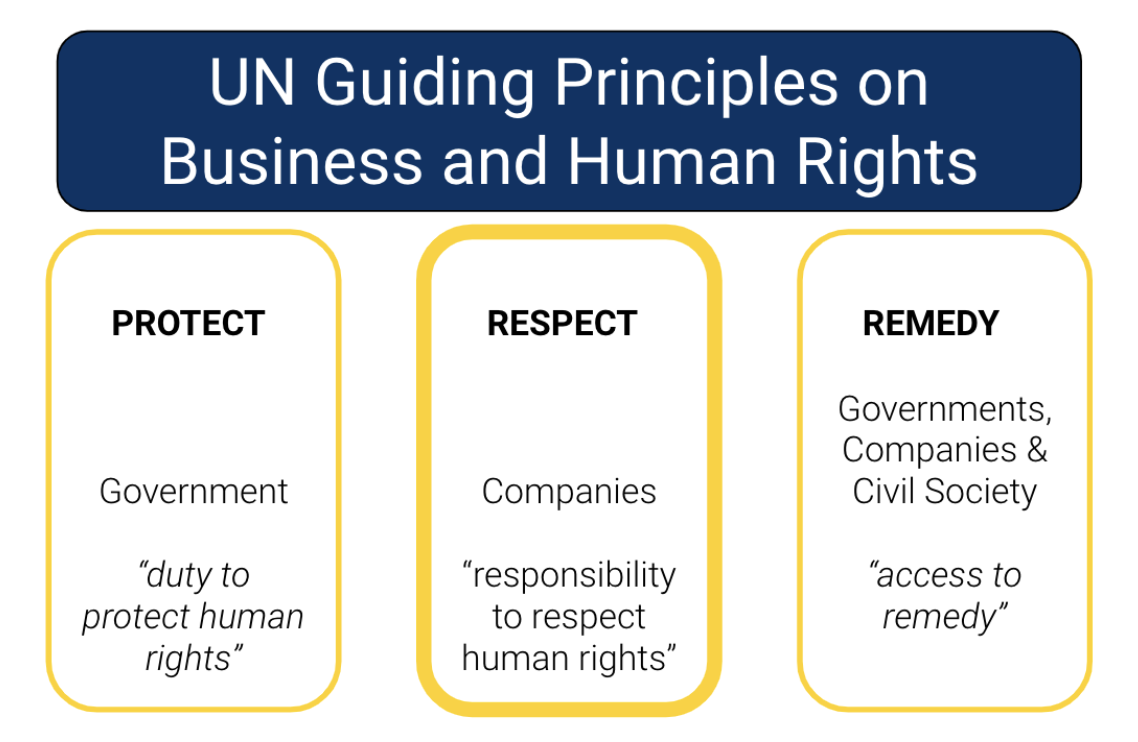This is part one of a three-part blog series, “Human Rights Due Diligence Snapshots.”
Part 2: The Powerful and Necessary Role of Workers in Human Rights Due Diligence
Part 3: The Role of Social Certifications and Audits in Human Rights Due Diligence
Human rights due diligence (HRDD) is more than a corporate sustainability trend–it’s a comprehensive, cyclical process that prioritizes workers’ well-being and rights in a company’s social responsibility efforts. For the seafood industry, which operates in some of the most unpredictable and high-risk environments, HRDD offers a practical framework to create safer and more equitable supply chains through continual improvement.
Breaking Down Human Rights Due Diligence
The concept of HRDD is rooted in the United Nations Guiding Principles on Business and Human Rights (UNGPs).

These principles lead companies to three key pillars:
- Commitment: Making a clear, company-wide commitment to respect human rights and decent work.
- Human Rights Due Diligence: Regularly assessing risks, acting on findings, tracking progress, and sharing results transparently.
- Remedy: Setting up systems to address harm caused by the company’s actions.
At its core, HRDD is about “knowing and showing” that your company is committed to respecting human rights in a measurable, transparent, and impactful way.
What Makes Seafood Supply Chains Different?
The seafood industry comes with unique challenges. Many workers face dangerous conditions, low wages, and limited ways to voice concerns. Migrant workers and women are especially vulnerable, often experiencing issues like harassment, isolation, and exploitation. These risks are further compounded by weak enforcement in many sourcing regions, complex supply chains and difficulties in tracing products all the way to the source.
Human rights abuses and labor exploitations don’t just hurt workers–they can also affect companies. Import detentions, lawsuits, reputational damage, and supply chain disruptions all pose a real business risk. With legislation and trade enforcement measures ramping up worldwide, the message to companies is clear: It’s time to take action.
Recommendations to Enhance Your Efforts
So, how can you execute human rights due diligence in a more meaningful and equitable way? The key is to approach HRDD thoughtfully, incorporating worker perspective and participation. FishWise recently released Human Rights Due Diligence: Fundamentals for Impactful Implementation. In this report, we provide practical guidance specific to seafood, focusing on aspects of HRDD that companies often miss, or struggle to implement. This report is supplemental guidance to FishWise’s free resources on The Roadmap for Improving Seafood Ethics (RISE) platform, designed to guide companies in building responsible supply chains through HRDD. From tools to expert guidance, RISE is here to help. When paired together, you have actionable steps and tools to transform HRDD from a compliance exercise to a dynamic strategy, grounded in three fundamentals for success.
Not Sure Where to Start? We’ve Got You Covered
Human rights due diligence is about more than just risk management–it’s about collaborating across your supply chains to build stronger, more resilient paths for sourcing that benefit workers, communities, and businesses alike. Here are three questions you can ask yourself to kickstart the process:
- How are we keeping workers at the core of our HRDD implementation?
- Are we taking action within the local context in our prioritized sourcing regions?
- Do our HRDD efforts build off of a strong foundation within our company?
By reflecting on these questions, you can identify your first steps in leveraging HRDD as a powerful tool for improvement. Yes, HRDD can feel overwhelming–especially with the growing web of global legislation and complex supply chains. But you don’t have to navigate it alone. You can also consult with like-minded peers, and human rights and social responsibility professionals, including FishWise, who can assist you in the design and implementation of your efforts no matter where your company is on its journey. With the right tools, support, and mindset, seafood companies can lead the way in responsible sourcing.
Written By:

